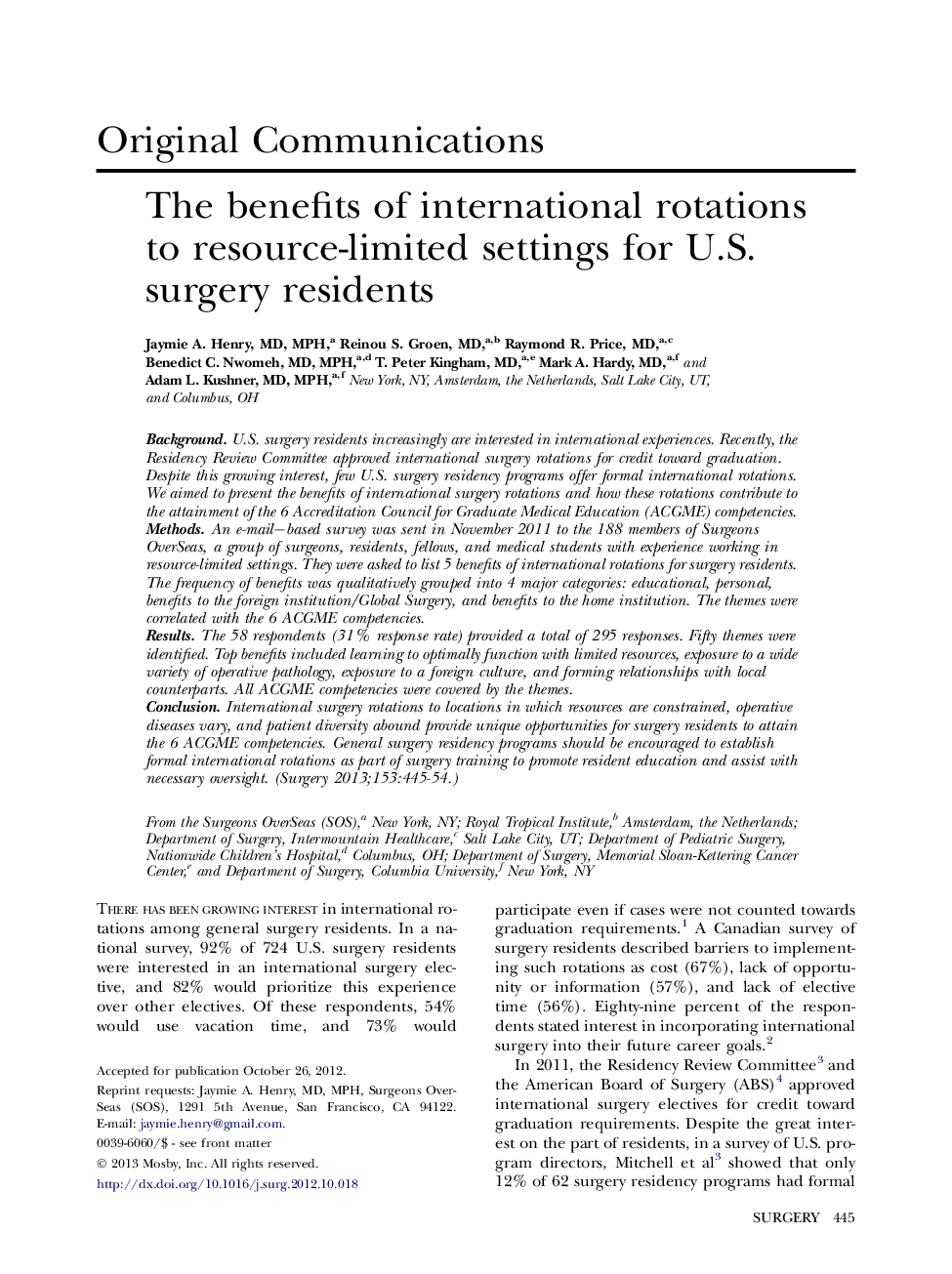| Article ID | Journal | Published Year | Pages | File Type |
|---|---|---|---|---|
| 4307761 | Surgery | 2013 | 10 Pages |
BackgroundU.S. surgery residents increasingly are interested in international experiences. Recently, the Residency Review Committee approved international surgery rotations for credit toward graduation. Despite this growing interest, few U.S. surgery residency programs offer formal international rotations. We aimed to present the benefits of international surgery rotations and how these rotations contribute to the attainment of the 6 Accreditation Council for Graduate Medical Education (ACGME) competencies.MethodsAn e-mail−based survey was sent in November 2011 to the 188 members of Surgeons OverSeas, a group of surgeons, residents, fellows, and medical students with experience working in resource-limited settings. They were asked to list 5 benefits of international rotations for surgery residents. The frequency of benefits was qualitatively grouped into 4 major categories: educational, personal, benefits to the foreign institution/Global Surgery, and benefits to the home institution. The themes were correlated with the 6 ACGME competencies.ResultsThe 58 respondents (31% response rate) provided a total of 295 responses. Fifty themes were identified. Top benefits included learning to optimally function with limited resources, exposure to a wide variety of operative pathology, exposure to a foreign culture, and forming relationships with local counterparts. All ACGME competencies were covered by the themes.ConclusionInternational surgery rotations to locations in which resources are constrained, operative diseases vary, and patient diversity abound provide unique opportunities for surgery residents to attain the 6 ACGME competencies. General surgery residency programs should be encouraged to establish formal international rotations as part of surgery training to promote resident education and assist with necessary oversight.
